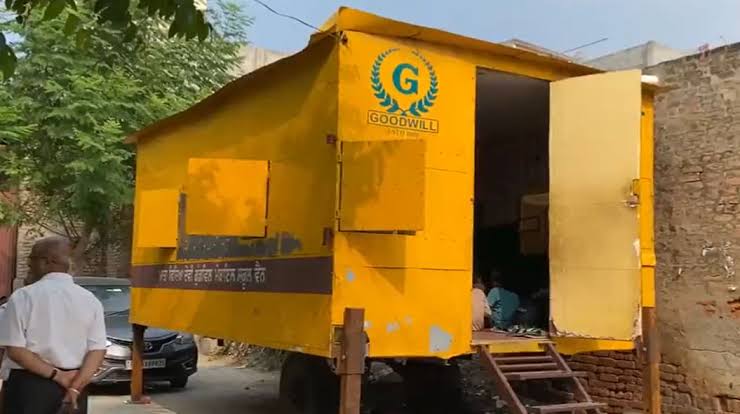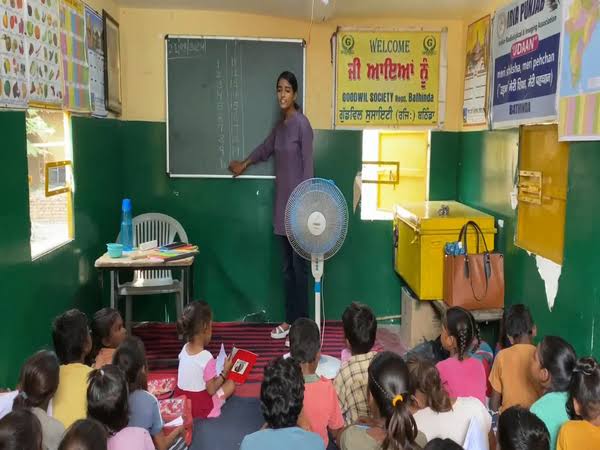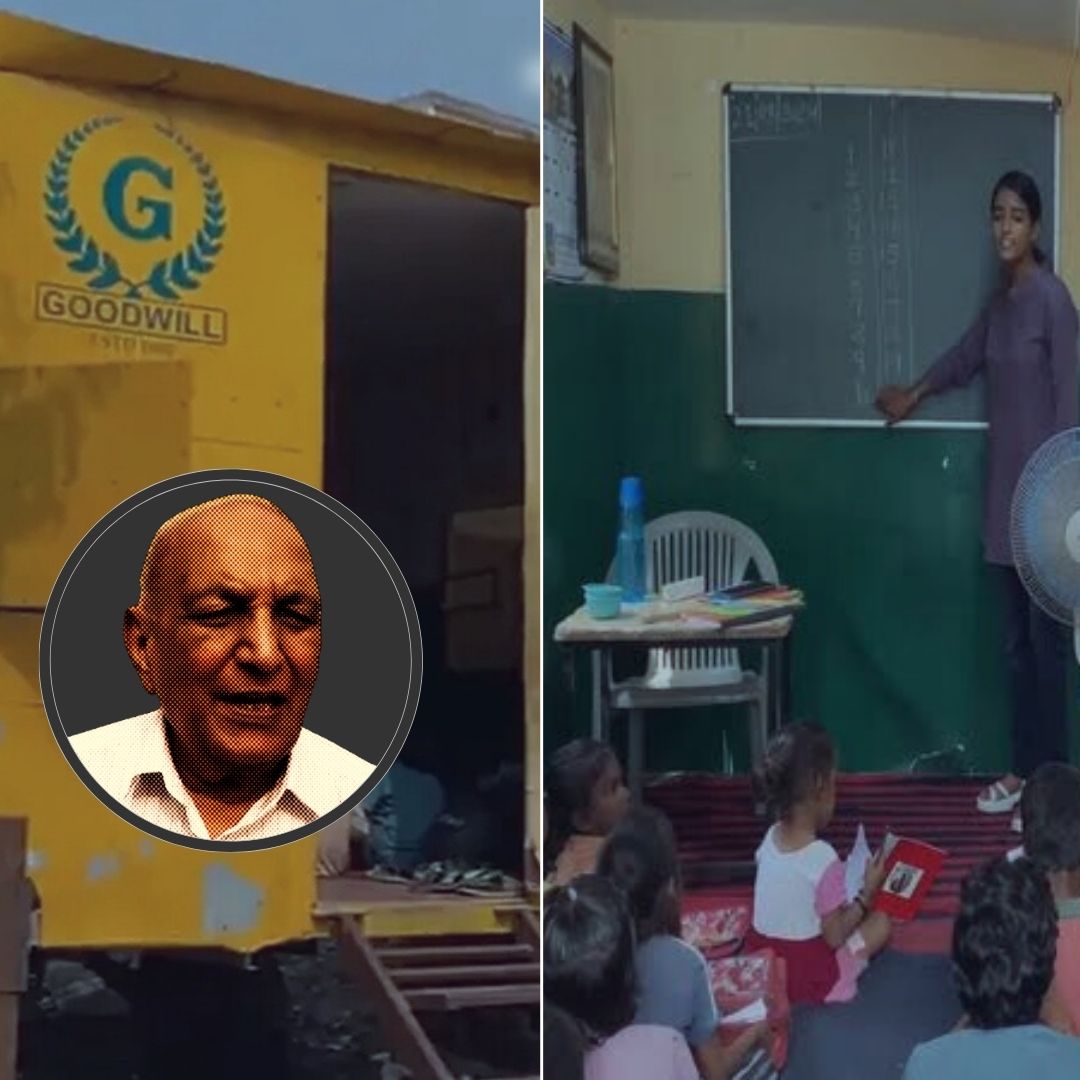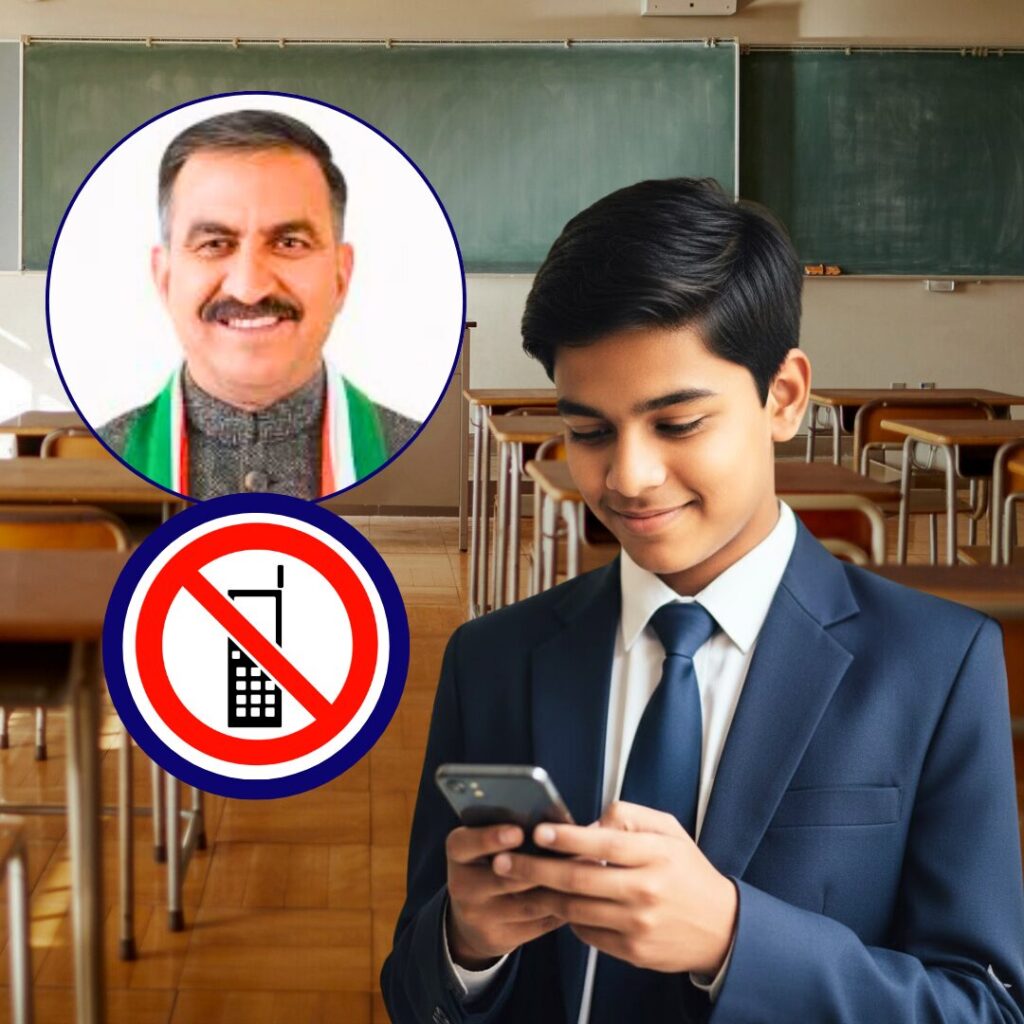In the bustling city of Bathinda, Punjab, a remarkable initiative is changing the lives of underprivileged children. The Goodwill Mobile School, founded by retired railway engineer K K Garg, operates mobile classrooms on trolleys, bringing education directly to those who need it most. Since its inception in 2006, this innovative program has expanded to 14 mobile schools, providing free education to thousands of children in marginalized communities.
A Vision Rooted in Compassion
K K Garg’s journey began with a simple observation during his train travels. He frequently encountered children from impoverished families who were unable to access education. “When I used to travel by train, I saw many innocent children deprived of education,” Garg recounted. This eye-opening experience ignited a passion within him to make a difference. After retiring, he dedicated himself to ensuring that these children had the opportunity to learn and grow.

How the Goodwill Mobile School Works
The Goodwill Mobile School operates on trolleys that travel through various neighborhoods in Bathinda, focusing on slums and remote areas where traditional schools are inaccessible. Each mobile classroom is equipped with basic learning materials, and classes are conducted in two shifts from 2 PM to 4 PM. This flexible scheduling accommodates the varying needs of children, allowing them to attend school without conflicting with their responsibilities at home.
In addition to education, the mobile schools provide refreshments, addressing the nutritional needs of students. This holistic approach ensures that children not only gain knowledge but also receive the support necessary for their overall development.
Impacting Communities
The impact of the Goodwill Mobile School initiative has been profound. Over the years, it has educated thousands of underprivileged children, empowering them with essential skills and knowledge. Parents who were initially hesitant about the program have become advocates, witnessing significant improvements in their children’s literacy and confidence.
Local community support has been instrumental in the initiative’s success. Volunteers and organizations have rallied around Garg’s vision, contributing time, resources, and encouragement. This collaborative effort fosters a sense of ownership within the community, reinforcing the importance of education as a shared goal.

Addressing Educational Inequality
The Goodwill Mobile School addresses educational inequality by breaking down barriers that prevent children from accessing quality education. Many of these children come from families unable to afford schooling or face logistical challenges that make attending traditional schools impossible. By bringing education directly to their doorsteps, Garg’s initiative ensures that no child is left behind.
As of September 2024, Garg’s plans for expansion aim to reach even more children across India. “Our mission is to impart knowledge to as many children as possible,” he stated, highlighting the importance of education in breaking the cycle of poverty.
The Logical Indian’s Perspective
At The Logical Indian, we believe that education is a fundamental right that should be accessible to every child, regardless of their background. K K Garg’s Goodwill Mobile School exemplifies how compassion and innovation can create meaningful change in society. By addressing educational disparities through mobile classrooms, this initiative not only transforms individual lives but also uplifts entire communities. As we reflect on Garg’s inspiring journey, we are reminded of our collective responsibility to support such transformative efforts and ensure that every child has the opportunity to learn and thrive. How can we further contribute to educational equity in our communities?
#WATCH | Bathinda, Punjab: In a unique initiative, free education is being provided to underprivileged children by Goodwill Mobile School of Bathinda, which is built on a trolley. pic.twitter.com/Z2EGGhakOM
— ANI (@ANI) September 25, 2024












